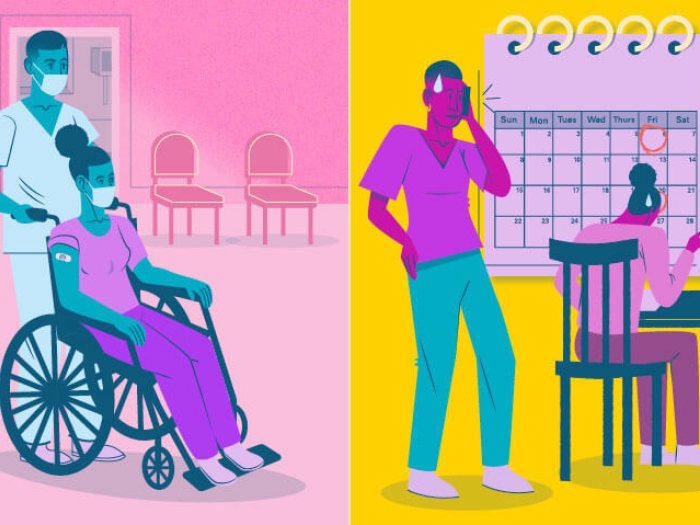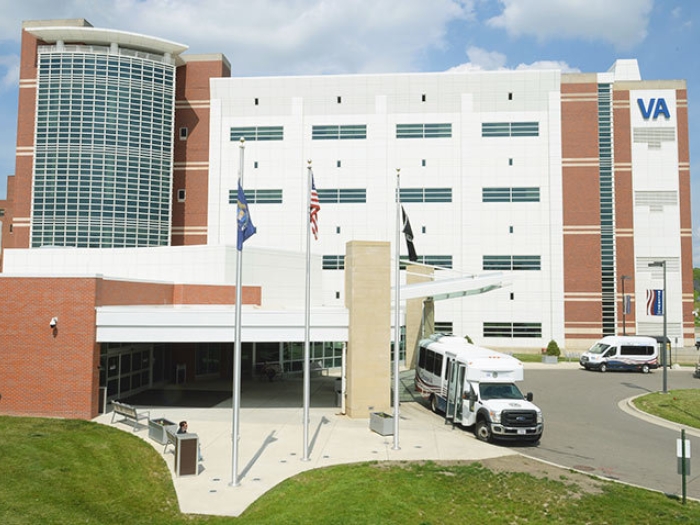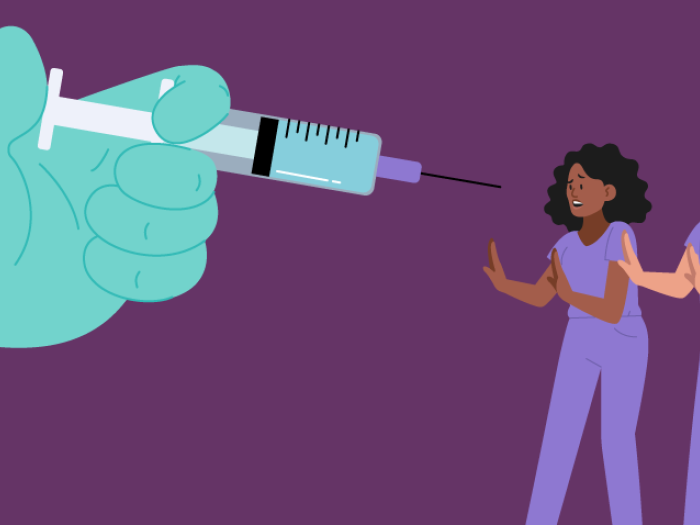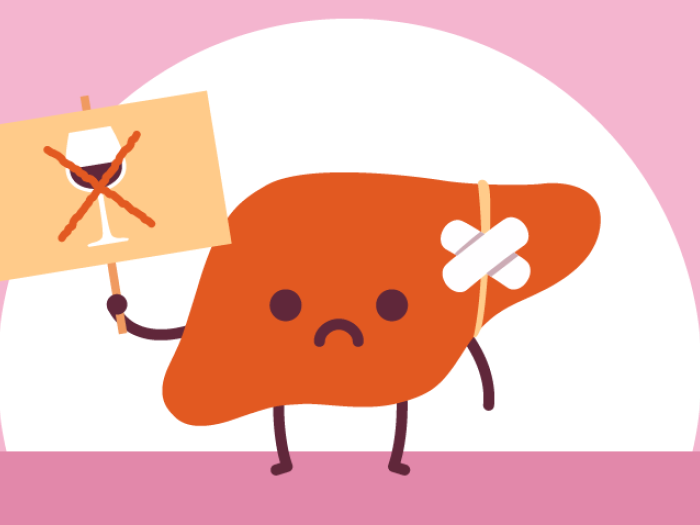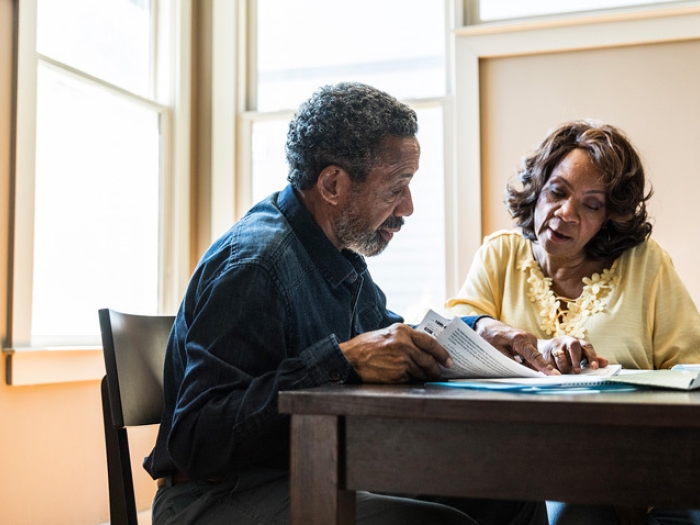As more and more hospitals across the U.S. admit patients with COVID-19, a Michigan team offers advice for doctors “drafted" for duties outside their norm.
2:00 PM
Author |

Editor's note: Information on the COVID-19 crisis is constantly changing. For the latest numbers and updates, keep checking the CDC's website. For the most up-to-date information from Michigan Medicine, visit the hospital's Coronavirus (COVID-19) webpage.
Interested in a COVID-19 clinical trial? Health research is critical to ending the COVID-19 pandemic. Our researchers are hard at work to find vaccines and other ways to potentially prevent and treat the disease and need your help. Sign up to be considered for a clinical trial at Michigan Medicine.
When March began, Valerie Vaughn, M.D., M.Sc., split her time between caring for general inpatients at the University of Michigan's hospitals, and doing research on how to reduce overuse of antibiotics in hospitals nationwide.
By the time the month was over, she had helped create a new kind of hospital team focused on caring for patients with COVID-19, learned how to provide an intensive level of care for the sickest among them, trained hundreds of physicians in how to do the same, and created free online learning tools for physicians nationwide.
Call it switching gears while driving a race car. Changing horses in the middle of a raging river. Or going to medical boot camp. Whatever the metaphor, Vaughn and her colleagues did it.
And now they're hoping that sharing what they learned will help others as their hospitals go through the same thing.
Near the epicenter
Michigan Medicine, U-M's academic medical center, is a few dozen miles west of the Detroit hospitals that have become a national epicenter for COVID-19 cases. It's gotten plenty of direct and transferred COVID-19 patients since mid-March.
When Vaughn's boss, division of hospital medicine chief Vineet Chopra, M.D., M.Sc., was tapped to lead the creation of an all-COVID unit, he asked Vaughn to work with him and the team of hospitalists, nurse practitioners, physician assistants, nurses, respiratory therapists and other staff that had volunteered for the team.
They had three days to prepare.
The "SWAT team", as Vaughn calls it, opened the RICU, or Regional Infectious Containment Unit, on March 16. They doubled the number of beds two weeks later.
By the end of March, the team had handed over the reins to a team of experienced intensive care professionals, so the unit could focus on the sickest patients. And the RICU team had moved on to transforming other areas of the hospital, and training their staff, in the same way.
By early April, more than 200 beds across U-M's hospitals were devoted to COVID care. General medicine physicians who hadn't practiced inside a hospital since their residency days – thanks to the ability to hand off to hospitalists – were being pulled into inpatient duty. Hospitalists were being pulled into caring for patients who would normally have been in the care of an intensive care team.
"What's amazed me most is how much people have stepped up to the challenge," says Vaughn. "As hard and uncomfortable as it is to do something you're not typically doing, it can also be therapeutic to say how can I help, let me do something. Yes, they're anxious, but they want to know how they can be as prepared as they can be, to be as helpful as possible to these patients."
Chopra agrees. "The silver lining in all of this is that I have personally seen the best in us come to the surface. Nurses, physicians, pharmacists, and therapists have come together and have shown selflessness, kindness, empathy and resilience in profound ways."
Making the leap
Even though they didn't choose hospital medicine, or ICU medicine, as their specialty, physicians may greatly underestimate how useful they can be with a little just-in-time training, and the help of residents, fellows, advanced-practice providers, and experienced nurses and respiratory therapists.
That training is now available for free through Michigan Medicine's new online COVID-19 CME portal. The session in Inpatient Management of COVID-19 patients provides an important overview for those who have never cared for a case, especially if they haven't been on inpatient duty in a while. The ICU Bootcamp is for those who will be caring for sicker COVID-19 patients but haven't practiced in an ICU for a while.
One of the most important roles of a COVID-19 inpatient physician, Vaughn notes, doesn't involve new skills. Rather, it draws on the doctoring skills that general medicine and hospital medicine physicians have already honed: the ability to assess and treat the entire patient, to talk with families who can't be with their loved ones, to humanize the experience for patients and their loved ones as much as possible, and to bring messages of love from the family back to the bedside.
By pairing a general medicine physician newly placed on inpatient duty with a resident, nurse practitioner or physician assistant who can handle inpatient charting duties, the team can make the most of each kind of provider's time. Administrators, too, can reduce the burden on the entire team by simplifying processes for what must be charted and recorded in the electronic medical record.
SEE ALSO: What Can Hospitals Do to Prepare for COVID-19 Cases?
"Hospitals facing a COVID-19 crunch need to make it easier for teams to focus on the medicine and the human connection," and to shorten the learning curve for those shifting into unfamiliar duties, she advises.
Other lessons learned
Placing COVID-19 patients on the same unit, and keeping non-COVID-19 patients in another area of the hospital, isn't just a good idea for protecting uninfected patients, Vaughn notes. It's also good for providers who are getting used to treating COVID-19, because they don't have to shift between the needs of different types of patients as they go from room to room.
"The learning curve is steep, but after a couple of days taking care of these patients, you have a good feeling about how to care for them, and a great sense of camaraderie with the rest of the team involved in caring for them," she says. "Everyone jumps in to help, because they know we're in this as a team, and that it's OK for respiratory therapists to step up to help a physician who doesn't know as much about ventilator care, or for nurses to suggest medications based on what other physicians have used."
The flattening of professional hierarchies long ingrained in hospitals may be a side effect of the tremendous and urgent sense of mission that has developed around responding to COVID-19, Vaughn notes.
MORE FROM THE LAB: Subscribe to our weekly newsletter
Those stepping into new roles should invite their colleagues to alert them when they see them about to slip up on protective practices that might be new to them. Similarly, they should help each other resist the urge to rush into a COVID-19 patient's room unprotected in order to help with an urgent situation. The safety of providers, to preserve their ability to care for the many more patients who will need them, must be paramount.
"To handle this pandemic, we need to all be all-in, and working toward a common goal, without competing priorities," she says. "We need to use everyone's skill sets to the fullest, without creating burnout. We're going to be different when all this is done."
Avoiding provider burnout is harder than ever, because team members caring for COVID-19 have to stay apart from family at home, and avoid in-person visits with loved ones and friends. Those who are switching to inpatient or ICU-level care should make a point of focusing on exercise, sleep, virtual connections with loved ones and healthy eating in between shifts.
"You're no good to anyone else if you're not healthy," she says. "Your mental and physical health have to come first, because they enable you to help others."
Paying attention to the appreciation that the community is showing health care workers can also brighten the day of a stressed COVID-19 inpatient clinician, Vaughn notes.
"All the little signs of love from the community -- the thank you signs, sidewalk chalk drawings, hearts in people's windows -- really do help."
Like Podcasts? Add the Michigan Medicine News Break to your Alexa-enabled device or subscribe for updates on iTunes, Google Play and Stitcher.

Explore a variety of health care news & stories by visiting the Health Lab home page for more articles.

Department of Communication at Michigan Medicine
Want top health & research news weekly? Sign up for Health Lab’s newsletters today!
